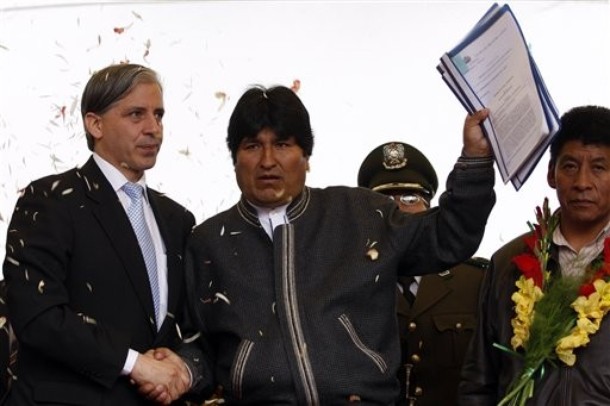The Alluring, Enduring Myth of Energy Independence

One of the more frustrating things about the discussion of energy consumption in the U.S. is the persistent myth that we can leverage technology to achieve self-sufficiency. If only we invested more at home, the thinking goes, we could be done with the world and its nasty dictators. It's a useful fiction but it is a fiction, as nicely demonstrated by this NewsHour report on Bolivia's lithium reserves.
According to the report, Bolivia has 70 to 80 percent of the world's lithium reserves. Lithium is a crucial raw material for long-life batteries - not just for gadgets like cell phones or digital cameras, but for the many electric cars we're promising to make (or buy) to free us from our dependency on oil. In this idealized future, we'd swap dependence on Saudi Arabia, Russia and Venezuela for... dependence on Bolivia. Not necessarily a bad trade, in my book, but not exactly liberating.
If we're about to enter a boom era for electric cars, than Bolivia's international clout will grow considerably. And, of course, Bolivia is run by Evo Morales who's tendency to nationalize industry and buddy up with Hugo Chavez hasn't won him many fans in Washington.
The point isn't that we shouldn't use lithium batteries, but that self-sufficiency is a mirage. In fact, according to the author Robert Bryce, the U.S. is 100 percent dependent on 18 strategic minerals (bauxite, manganese, alumina, etc.).
Hat tip: Boing Boing.
---
Bolivia's President Evo Morales, right, shakes hands with his Vice President Alvaro Garcial Linera as Morales holds up a law approved by Congress in La Paz, Tuesday, April 14, 2009. Credit: AP Photo





